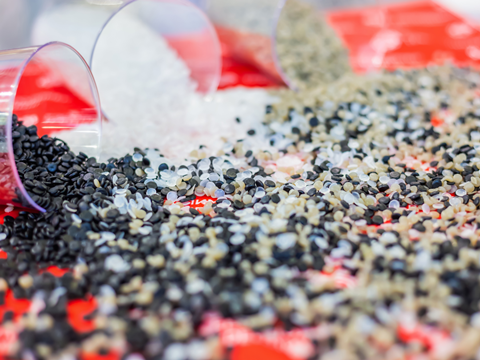
BASF, SABIC, and Linde are launching operations at the ‘world’s first’ demonstration plant to heat its large-scale steam cracking furnaces with renewable electricity; it is expected to reduce CO2 emissions by at least 90% compared to conventional technologies.
In March 2021, a joint agreement was signed to develop and demonstrate solutions for electrically heated steam cracking furnaces. Now BASF will operate its Verbund site in Ludwigshafen, Germany, for which Linde oversaw the engineering, procurement, and construction.
Meanwhile, Linde will commercialize the new technology under the STARBRIDGE trademark – an effort hoped to help the petrochemical industry replace its conventional fired technologies and lower its carbon emissions.
Steam crackers require ‘a significant amount’ of energy to break down hydrocarbons into olefins and aromatics, BASF explains. The reaction, which is an important step in the production of basic chemicals, takes place in furnaces at temperatures of around 850°C.
Instead of using conventional fuels, the partners intend to demonstrate the feasibility of utilizing electricity from renewable heat sources in continuous olefin production.
Two different heating concepts will be tested in two separate demonstration furnaces. One will directly channel an electric current into the cracking coils, while another will use indirect, radiative heat using heating elements placed around the coils.
Both furnaces are set to process around four tons of hydrocarbon feedstock every hour and consume 6 megawatts of renewable energy.
The demonstration plant is fully integrated into existing steam crackers in Ludwigshafen and produces olefins like ethylene, propylene, and potentially higher olefins from saturated hydrocarbon feedstock. Now it intends to inform the final stages of the STARBRIDGE technology’s development by gathering data and experiences about material behaviour and processes under commercial operating conditions.
As part of its Decarbonization in Industry funding programme, which seeks to help energy-intensive industries transition into carbon neutrality, the German Federal Ministry for Economic Affairs and Climate Action has provided €14.8 million in funding towards the development of the furnace technology.
“With the development of electrically operated steam cracking furnaces, we are getting our hands on a key technology that will help to significantly reduce greenhouse gas emissions in the chemical industry,” said Dr. Martin Brudermüller, chairman of the Board of Executive Directors of BASF SE. “It fills me with pride and joy that we have achieved this success together with our partners SABIC and Linde.
“The demonstration plant here in Ludwigshafen will provide us with valuable experience on the final step towards the industrial application of this technology.”
Abdulrahman Al-Fageeh, CEO of SABIC, continued: “The e-furnace’s technology holds huge potential for the sustainability of the global petrochemical industry. It can demonstrate the role that renewable electricity can play in higher efficiency and low-emission chemical processing.
“Through close collaboration, teamwork, intellectual property development, and advancing the best technical solutions holistically, the teams at SABIC, BASF and Linde have brought this project to this key stage. We are proud to be here together today to celebrate the power of collective action on our journey toward a circular carbon economy.”
“It is our common goal to demonstrate that it is possible to electrify the petrochemical industry and to operate a steam cracker with sustainably generated electricity,” added Jürgen Nowicki, CEO of Linde Engineering. “This outstanding joint project is a significant proof of how together we can develop ground-breaking technologies that will advance us on the journey towards net-zero CO2 emissions and climate-neutral industry.
“The STARBRIDGE technology brings the vision of an emission-free petrochemical industry a step closer.”
Former BASF senior executive turned independent consultant, Richard Carter, previously spoke to Itero Technologies CEO Simon Hansford about the present and future of the chemical recycling sector. He argued that, while various petrochemical companies are working to electrify their steam cracking processes, the energy must come from renewable wind and solar sources to ensure that the process is fully sustainable.
Meanwhile, Borealis has invested €4.5 million into the cracker furnaces at its olefins unit in Porvoo, Finland. In doing so, it intends to increase the amount of renewable and recycled raw materials used in its production of ethylene and polypropylene.
If you liked this story, you might also enjoy:
Report: The ultimate guide to global plastic sustainability regulation
The Brief: Oxo-(bio)degradables: the who, what, and why of breaking down fossil-based plastics
Sustainable Packaging Summit: How Kraft-Heinz uses collaboration to drive innovation
The Brief: Using ocean-bound plastic in packaging – how, why and should we?














No comments yet